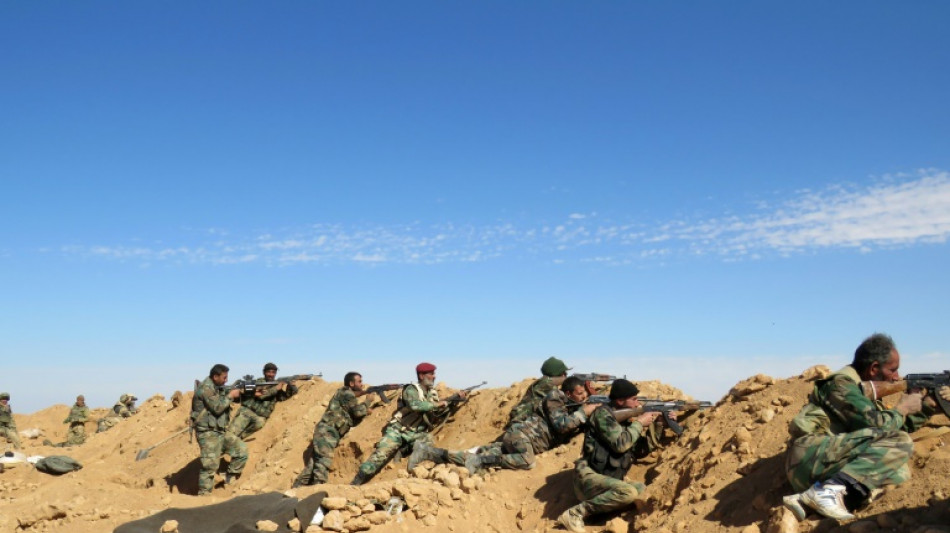

Syria's Raqa: IS bastion along the Euphrates
Here are key points regarding Raqa, the northern city that serves as the Islamic State group's de facto capital in Syria.
IS now faces a major assault by Kurdish-Arab forces in the surrounding province of Raqa, part of a two-pronged offensive that includes an operation by Iraqi forces to retake the jihadist-held city of Fallujah.
- Raqa as IS's 'capital' -
This city on the banks of the Euphrates River was under IS control for just five months before the group declared its self-styled Islamic "caliphate" in June 2014.
Raqa became the de facto capital for territory under IS control in Syria, where it implemented its ultra-conservative interpretation of Islamic law.
The group terrorised the city's estimated 300,000 residents with beheadings, crucifixions, and other brutal forms of violence.
Particularly gruesome deaths were filmed and distributed in what became a notorious IS propaganda tool.
Figures provided by the Syrian Observatory for Human Rights monitoring group indicate that more than 3,500 people were killed by the end of 2015, more than half of them civilians.
- A model city, a living hell -
IS has tried to depict Raqa as an ideal, functioning metropolis where jihadist-run institutions provide for residents.
But the activist group Raqa is Being Slaughtered Silently has taken to social media to show that the city is in fact devastated.
"People are suffering... They (IS jihadists) don't do anything for the civilians," said RBSS co-founder Abdalaziz al-Hamza.
Instead, many residents are jobless and terrified.
"Because civilians don't have any work, anything to earn money, IS has tried to get them to join them (by promising) salaries, money," he told AFP.
"Ninety percent of things are banned. There is no coffee shop, no school apart from IS schools. Men can't wear jeans."
- Using civilians for cover -
Raqa city and the surrounding province have already come under fire from the US-led air coalition bombing IS and from Russian warplanes backing the forces of Bashar al-Assad.
And now, the Kurdish-Arab alliance known as the Syrian Democratic Forces is fighting to clear IS from territory north of the city.
Although SDF commanders have insisted they are not targeting Raqa city just yet, IS fighters appear to already be taking precautions.
"They (IS militants) are using the civilians as a cover," Al-Hamza said.
RBSS this week reported IS had closed bus stations in Raqa in an attempt to prevent residents from fleeing the city.
Jihadists are also considering setting up bases in schools and other civilian infrastructure in an attempt to shield themselves from air strikes.
- Strategic city on the Euphrates -
Raqa and its eponymous province occupy a strategic location where several major roads intersect on the banks of the Euphrates River in northeastern Syria.
It is east of Syria's second city Aleppo, just 90 kilometres south of the Turkish border, and less than 200 kilometres (120 miles) from neighbouring Iraq.
Raqa has prospered owing to agriculture in the fertile river valley, and it also benefits from nearby hydro-electric dams that generate power for much of the country.
It was the first provincial capital to fall out of Syrian government control in March 2013.
If IS is eventually expelled from the city, it would be one of the most significant victories against the group since it rose to prominence in 2013.
Baghdad-based US military spokesman Colonel Steve Warren said that if IS loses Raqa, "it's the beginning of the end of their caliphate".
J.P.Hofmann--MP


